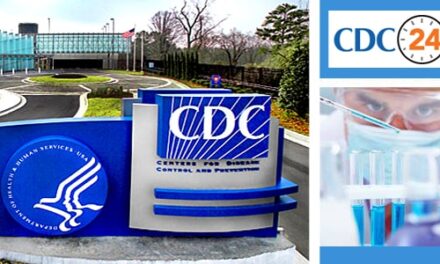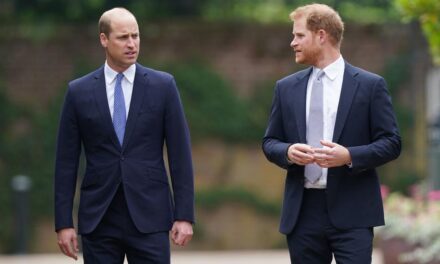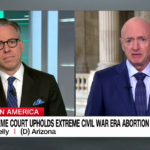
Who’s eligible for second Covid-19 booster shots — and when to get them

CNN —
The US Food and Drug Administration has authorized additional booster doses of the Pfizer/BioNTech and Moderna coronavirus vaccines for adults 50 and older – and now, many people in that group are wondering whether to get that dose now or later.
On Tuesday, the FDA announced that it has expanded the emergency use authorization for the two vaccines to allow adults 50 and older to get a second booster as early as fourth months after their first booster dose. The amended EUA also authorizes second booster doses for certain people 12 and older who are immunocompromised.
Following the FDA’s action, the US Centers for Disease Control and Prevention updated its recommendations to allow a second booster dose for those groups – and noted that adults who got a primary shot and booster dose of the Johnson & Johnson vaccine at least four months ago may now get a second booster dose of the Pfizer or Moderna vaccine.
The FDA and the CDC emphasized that they “will continue to evaluate data and information” around the potential use of second booster doses for other age groups.
But for those who are eligible for a second booster dose, there are plenty of questions about when might be the best time to get vaccinated, where and how.
Older adults and certain immunocompromised people who are eligible for a second booster dose of the Pfizer/BioNTech or Moderna vaccine can get it at least four months after their first booster.
“Evidence that we have now from Israel suggests that by getting this, one can reduce the risk of hospitalization and death in this population of older individuals, and so we think that this is something that is worthwhile for people to consider,” Dr. Peter Marks, director of the FDA’s Center for Biologics Evaluation and Research, said Tuesday.
“If it were my relatives, I’d be sending them out to do this again because of the higher level of protection,” Marks said.
At age 64, Dr. William Moss, executive director of the International Vaccine Access Center at the Johns Hopkins Bloomberg School of Public Health, is eligible for a second booster dose – but he said he plans to wait to get it.
He completed his initial two doses of vaccine, had a booster shot and was infected with the Omicron coronavirus variant. Studies published in February suggest that being vaccinated and having been infected with the coronavirus can offer a type of “durable” protection called hybrid immunity.
“And I don’t have any underlying medical condition, so I feel pretty comfortable waiting,” Moss said. “That could change if we see a huge increase in cases in the United States. But if we don’t, I may be more inclined to wait until the fall and perhaps get my second booster then.
“Now, my parents are 89 and 93 – and I would recommend that they get a booster dose now, because they’re at so much higher risk of severe Covid.”
Moss added that access to Covid-19 antiviral medications that infected people can take at home with a prescription also can play a role in how comfortable someone might feel with waiting to get their second booster dose.
“I think that’s a very important part of the conversation,” Moss said.
Several studies have shown that the immunity against Covid-19 elicited by the Pfizer/BioNTech, Moderna and Johnson & Johnson vaccines can wane over several months, especially among older adults who might have weaker immune systems.
So the timing of a second booster can make a difference, because the benefit of that vaccination can be “short-lived,” said Dr. Jorge Salinas, an infectious disease specialist at Stanford University.
“It’s the same as flu vaccination,” Salinas said. “We get vaccinated once a year, and we open it pretty early. But some people have shown that if you do it too early, you can lose a bit of the protection towards the tail end of the flu season.”
The rollout of additional booster doses is expected to mirror the rollout of initial booster doses, with pharmacies and doctor’s offices among the main sites where people could get their vaccinations.
A second booster shot might be recommended for more Americans as we move into fall.
“It’s possible that people will need to get another vaccine,” Marks said Tuesday, adding that for adults 50 and older, getting a fourth dose now “will not preclude” them from getting an additional dose in the fall “if there’s evidence that another booster could be of benefit.”
In other words, a second booster dose now does not necessarily mean you wouldn’t be eligible for another boost later this year.
“It may be that some people who get a second booster dose in April or May, they may need and be eligible for another booster dose in the fall, should we suspect a late fall or winter surge as with other respiratory viruses,” Moss said.
It is “almost inevitable” that most people will need another booster shot at some point, because the coronavirus will continue to change, said Dr. Megan Ranney, a practicing emergency physician and academic dean of the School of Public Health at Brown University.
“The question is, is that moment today? Or is it sometime down the road, either when we are seeing signs that another surge is hitting us or just in the fall, the same way that we do for flu shot?”
The vaccines currently available for second booster shots are the same ones that have been given for initial doses and boosters throughout the pandemic.
But boosters that people receive this fall or winter could be completely different, Moss said. For instance, it could be a protein-based vaccine – like the one from Novavax, which has applied for FDA authorization – it could be a vaccine administered as a nasal spray, or it could be a vaccine specifically developed to target a certain variant, such as Omicron.
“There’s been a discussion for several months now about Omicron-specific vaccines, and my understanding is that the data on those will be available in May. But many people may be better off – if not most people – getting an Omicron-specific booster should that become available. The timing on that is not clear,” Moss said. “The point is that in the coming months to year, there may be more options for booster doses that actually may be better than another dose of the original mRNA vaccine.”
The FDA’s Vaccines and Related Biological Products Advisory Committee is scheduled to meet next week to discuss the need for Covid-19 vaccine booster doses in the future, including the process for selecting variant-specific boosters.
Some companies, including Pfizer and Moderna, are developing variant-specific vaccines that could target whatever strain is circulating when the booster might be needed. Pfizer and Moderna also have said they are working on a vaccine that would specifically protect against the Omicron variant.
“There may be a need for people to get an additional booster in the fall along with a more general booster campaign, if that takes place,” Marks said Tuesday. “Because we may need to shift over to a different variant coverage,” like a formula developed to target a specific variant or a mix of variants.
Source: https://www.cnn.com/2022/03/29/health/second-covid-booster-shot-timing/index.html


















